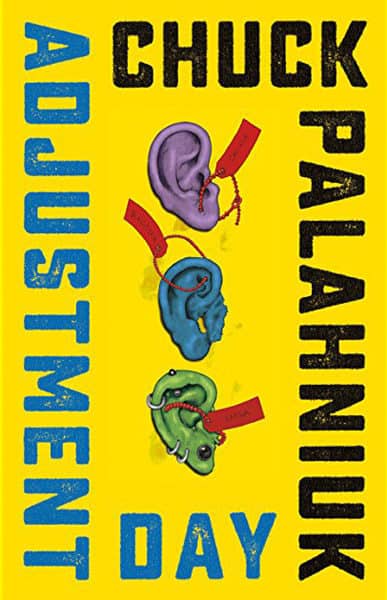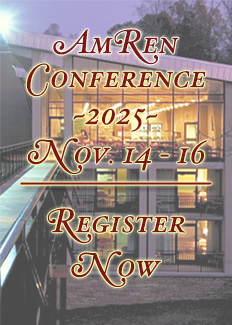Adjustment Day
John Jackson, American Renaissance, October 5, 2018

Chuck Palahniuk, Adjustment Day, W. W. Norton & Company, 2018, $17.67, 336 pages.
The new novel from Fight Club author Chuck Palahniuk, Adjustment Day, is a dystopian satire about racial nationalism and separation. Mr. Palahniuk paints separation in dark terms, but puts sensible arguments for it in the mouths of his characters. The result is an interesting angle on ideas that are gaining currency.

The novel is set in a future in which the existing power structure has been overthrown through selective assassination, and the former US is divided along lines of race and sexual orientation. Homosexuals have their own state in the former California, blacks have Blacktopia in the deep South, and the rest of the country is given to whites as Caucasia. Jews fly to Israel, Asians are repatriated, and Mexicans self-deport, with dreams of surpassing the white man once they are free of him.
The black ethnostate is an Afrocentric fantasy similar to Wakanda in the movie Black Panther. Blacks live in fantastic opulence and have impossible powers, such as the ability to create buildings simply by singing in harmony. They have far-fetched excuses for the former backwardness of Africans: They never invented the wheel because they could fly, and they had no need for writing because they were telepathic.
Caucasia is as backward as Blacktopia is advanced, and the novel explains why:
It felt as if the white race had lost its way. It no longer had blacks and queers to feel superior to so a key source of its pride was gone. Whites had been like a wealthy family who performed an ongoing pageant of morality and ingenuity to impress a household of idiot and degenerate servants. In the absence of queers and blacks, Charlie [a white chieftain] and his fellow whites had lost their motivation to live superior lives. Without underlings to dazzle, the white ethnostate seemed to be floundering. (190)
Whites revert to primitive conditions; many become serfs and some are eaten by wild animals. Others are so hungry they practice cannibalism. Whites, badly disguised as blacks, sneak into Blacktopia to try to steal the secrets of a more advanced society. Blacks realize they are spies but pretend not to, and give absurd advice. For example, they explain that drinking urine has health benefits, and gullible whites spread this custom throughout Caucasia. Urine drinking is even practiced at weddings.
The white chieftain Charlie and his officials are impossibly arrogant and self-absorbed — just as feminists imagine men to be. Charlie loves flattery and thinks he is irresistible to women, although many in his harem of wives so despise him they conspire to castrate him.
Along with the custom of drinking urine, Caucasians have a newly worshipful attitude towards their saliva. As part of the celebration of marriage, one of the chieftain’s attendants tastes the saliva of the bride to ensure she is fully European. The implication is that whites are so obsessed with their own group that there is nothing about themselves they will not glorify.
The white ethnostate is so focused on childbirth that it declares a moratorium on work in science and engineering so as to redirect all energy into reproduction. This is justified as a way to lift historically low white birth rates, but the author implies that the true motive is laziness and an obsession with sex.
Fertility is a problem in Gaysia, where people cannot reproduce in the usual way. Citizens of both Blacktopia and Caucasia can declare themselves homosexual once they become adults, which in theory means they must be deported to Gaysia. Gays from the ethnostates would be exchanged for straight people from Gaysia so that neither nation would lose population, but there are not enough straight people in Gaysia to make exchanges.
Gaysia requires that all fertile lesbians be artificially inseminated by gay men, but it will be many years before the resulting children are old enough to declare their sexuality and be exchanged. In the meantime, homosexuals from the black and white ethnostates — unwelcome anywhere — are held in prison camps where they sort garbage.
With the exception of Asians and Jews who are only mentioned in passing, there is self-aggrandizing fantasy to suit every group. Although Gaysia is ultimately depicted as miserable and oppressive, gays flatter themselves. One raves about how influential homosexuals have always been in Western Civilization and claims that Adolf Hitler and Ludwig Wittgenstein were gay lovers.
A Hispanic boasts about his group: “These white people are muy loco. After they all starve or wipe out each other, we’ll come pick up the pieces.” In the meantime, he expects Mexico to “blossom like something out of the Italian Renaissance” (187). He also claims that images of Aztecs severing heads and cutting out the hearts of human victims actually depict surgical wonders such as head transplants.
Mr. Palahniuk clearly believes racial separation is an ugly fantasy. The only unambiguous winners are the straight citizens of the utterly improbable Blacktopia. On the other hand, Mr. Palahniuk obviously does not believe identitarian ideas should be suppressed. A character named Talbott makes many politically incorrect observations:
Each group must inhabit a homeland where that group constitutes the norm. Otherwise either self-destroying, self-hatred, or other-attacking self-aggrandizing occurs. . . . No culture should be held to the expectations and subjected to the withering gaze of another. (147)
Just as the genders are separated in most athletic competitions so should the cultures be removed each from the others so that one culture might not always dominate.
Talbott says people lose their identities as religion and community decline, and he suggests that race fills the vacuum; it is a more natural organizing principle than abstractions such as capitalism or communism. He continues:
Allow each culture its own courts of law. Allow each to evolve in isolation. For too long the differing strains of mankind have been blended into an increasingly blander pool. A culture of shared mediocrity that only serves as a broader field of consumers receptive to the same generic advertising and thus steered to desiring large amounts of a narrow spectrum of products. Cultures developed over millennia in relative isolation, in climates and conditions that prompted each to create its own imagery and rituals, all of these are being displaced by the global standard. To preserve the integrity of each, the cultures must be allotted living space away from the influence of other cultures. (149)
In the book, though, in contrast with the hopes of real-world separatists, the “self-aggrandizing other-attacking” Talbott speaks of continues even after separation. Separation does not even protect from physical conflict. Near the end of the novel, Gaysia declares war on both Caucasia and Blacktopia. This is retaliation against “straights” after a straight Gaysian kills their chieftain.
Although the plot is largely tragic, there is nothing in ethnic or racial nationalism that necessarily leads to the horrors in the book — and this could even be Mr. Palahniuk’s message. After all, he has even cited Jared Taylor, along with black separatists, as some of the sources behind the ideas in the novel, and his long-term publisher rejected the book because it was “too dangerous.” He may be helping the cause of white identity by treating it satirically and humorously rather than attacking it directly.
















